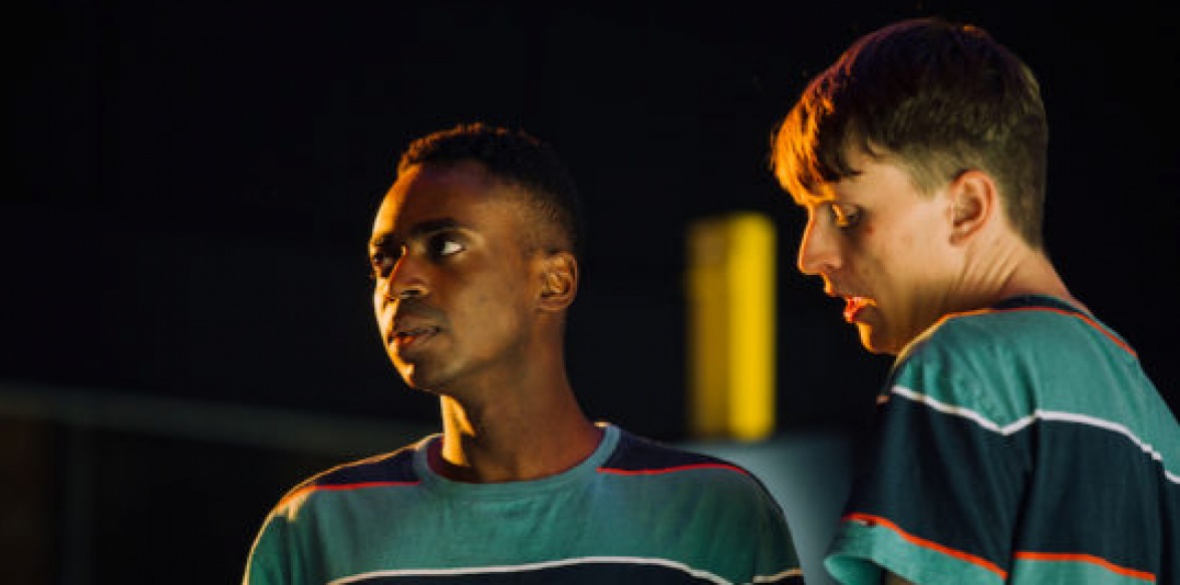This is the last article you can read this month
You can read more article this month
You can read more articles this month
Sorry your limit is up for this month
Reset on:
Please help support the Morning Star by subscribing here
The End of Eddy
The Studio
“SUFFERING is totalitarian — it somehow gets rid of anything that doesn’t fit into its system,” one of the narrators in The End of Eddy reflects.
It's a line which succinctly captures the essence of Edouard Louis’s intent in his highly acclaimed 2014 gay coming-of-age novel, an attempt to comprehend the systemic roots of an individual's suffering.
Stewart Laing and Pamela Carter’s magnificent theatre adaptation brings this painfully honest memoir vividly to life in a staging — a bus stop at the back of the stage with the four TVs in Eddy's household at the front — as spare and direct as the the novelist's prose .
The TVs serve as both informative vehicles and the “extras” in Eddy’s life — his family and the many who taunt him. All these parts are played, both onstage and in pre-recorded video, with extraordinary versatility by Alex Austin and Kwaku Mills, who seamlessly make the transition to enthusiastic seminar leaders to the vulnerable Eddy and his pitiless bullies.
Eddy’s tortured childhood is narrated by Edouard, the author of the memoir, with Austin and Mills constantly exchanging roles of the narrator and Eddy, as well as the various family members and bullies. That fluidity underlines the plurality of identities within Eddy as he tries to conform to the working-class masculine culture of his village, his attempts to “be a man” and the cultural policing of normality which creates the duality of being true to one’s self and yet trying to “fit in.”
Much like Louis in the novel, the performers explicate the emotional dynamics at play, often explicitly stepping out the narrative to analyse how the suffering of poverty breeds the often toxic atmosphere in the village. Eddy’s family shame their neighbours for their laziness and in the process shore up their own pride in order to cope with their miserable living situations.
Yet it's far from an unremittingly bleak tale. At turns humorous, harrowing and, above all, hopeful, it infectiously captures the wildly oscillating peaks and troughs of adolescent emotion.
Louis’s novel became an urgent intervention into the French cultural conversation regarding structural poverty and homophobia and Laing and Carter’s adaptation similarly seeks to intervene, creating an inclusive production that speaks to all while managing to be innovative in its mixed-media execution — but never at the expense of obscuring its affirmative message of hope that this system is not inescapable.
Runs until August 26, box office: eif.co.uk and then at the Unicorn Theatre, London, from September 13-October 16, box office: unicorntheatre.com










